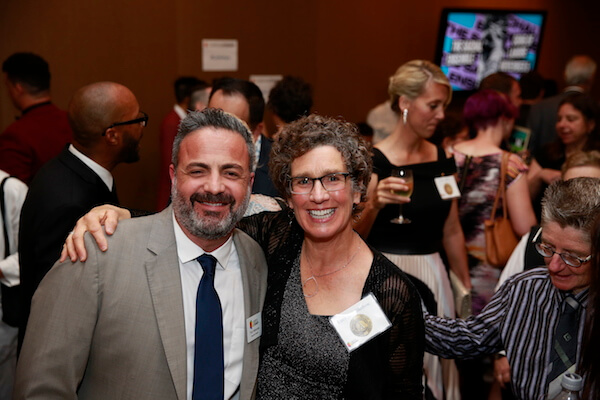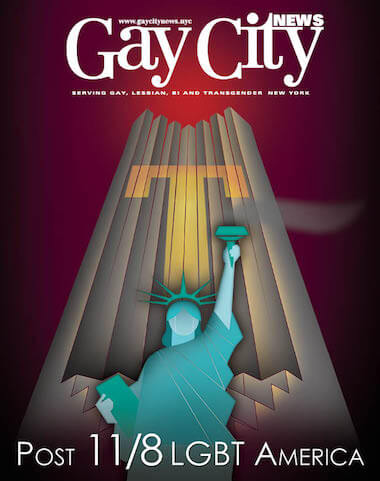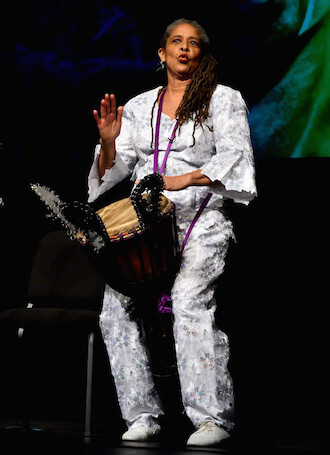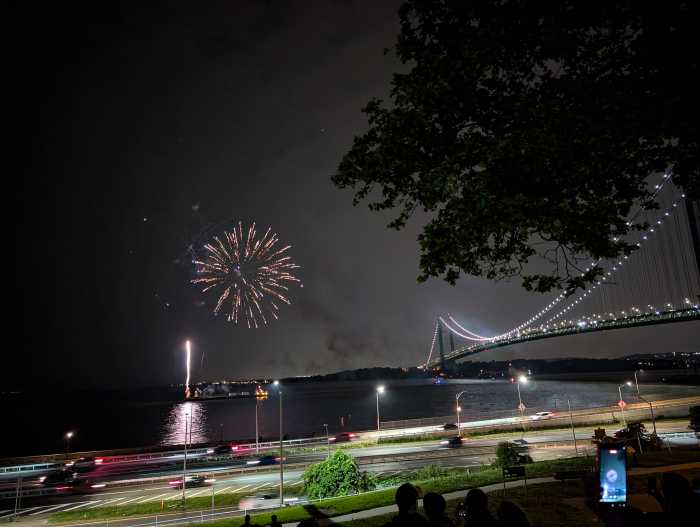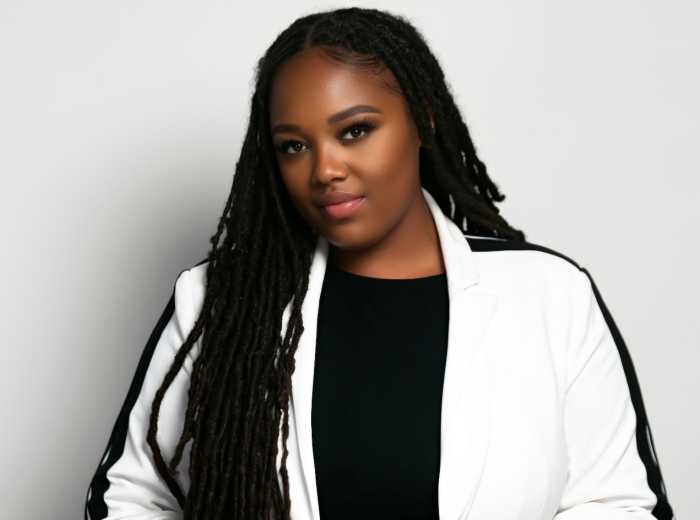Fiction winner Trebor Healey. | SETH J. BOOKEY
At a ceremony April 25 at the New School’s Tishman Auditorium, the Publishing Triangle Awards, which recognize LGBT writers and writing, celebrated their 25th anniversary. Trent Duffy, the group’s treasurer, recalled that the Publishing Triangle was created when a handful of motivated lesbians and gay men in publishing met in the winter of 1989. “One way to be publicly out there was to give awards,” he said. Within a few months, the group bestowed its first honors.
John D'Emilio, who won the Bill Whitehead Lifetime Achievement Award this year, is an historian and pioneer in the field of gay and lesbian studies. “History is the story of change,” said D'Emilio, the author or editor of more than half a dozen books, including “Sexual Politics, Sexual Communities: The Making of a Homosexual Minority in the United States” and “His Lost Prophet: The Life and Times of Bayard Rustin.”
“Forty years ago, it was unimaginable to me and everyone I knew that [the LGBT community] would provide a body of work that would lead to this award,” he said. “Thirty years ago, it was still possible to write notes on gay history and still have time to go to the beach.”
Publishing Triangle Awards celebrate quarter century of achievement
D'Emilio, who teaches at the University of Illinois at Chicago, said that many of his students are unaware, before entering his classroom, of the AIDS epidemic or that gay pride parades “commemorate a rebellion.” However, students “of all genders and sexual identities and backgrounds,” he said, “are eager to consume stories about the past.”
Award-winning novelist and essayist Edmund White, on hand to introduce the finalists for the Publishing Triangle’s debut fiction award named in his honor, reminisced about Bill Whitehead, a pioneering editor of gay and lesbian books who died of AIDS in 1987. The Edmund White Award for Debut Fiction went to Lysley Tenorio for “Monstress,” a collection of stories exploring the experiences of Filipinos/as in a variety of cultural settings around the world.
Poetry honoree Rachel Rose. | SETH J. BOOKEY
Ira Silverberg, a long-time agent to LGBT authors and currently the director of literature at the National Endowment for the Arts, was awarded the Publishing Triangle's Leadership Award. Back in the 1980s, he noted, gay and lesbian literature was a newly “discovered” segment of literature. “Now, we're part of the dominant culture, which is funny because people out there still hate us,” he said. Explaining that new technologies and social networking allow authors “to build things now we couldn't before,” Silverberg said it is a “hopeful time for publishing.”
Lesbian author and cartoonist Alison Bechdel won a second Judy Grahn Award for Non-Fiction for her graphic memoir “Are You My Mother?” In a written statement, she said her mother's “crisp editorial voice was in my head” while working on the book.
The Randy Shilts Award for Non-Fiction was given to novelist Christopher Bram for his nonfiction “Eminent Outlaws: The Gay Writers Who Changed America,” a chronicle that looks back 70 years and celebrates the power of books and the written word generally.
The Ferro-Grumley Award for Fiction went to Trebor Healey, whose novel “A Horse Called Sorrow” explores the lives of gay men in San Francisco in the 1980s and 1990s at the height of the AIDS crisis.
Lesbian and gay poets were also recognized, with the Audre Lorde Award going to Rachel Rose for “Song and Spectacle” and the Thom Gunn Award presented to Richard Blanco for “Looking for the Gulf Motel.”
A full list of finalists in each category appears at publishingtriangle.org. Seth J. Bookey is a member of the Publishing Triangle’s steering committee.



